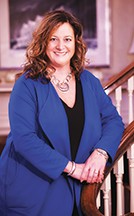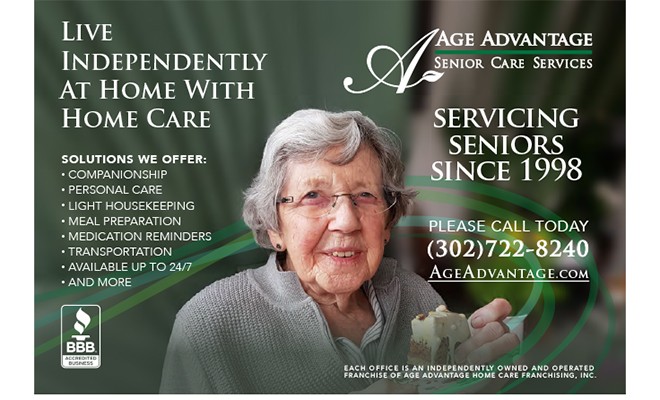Denial – Challenging For Us & Our Parents
 By Kristin Stetler Donovan, Owner, Age Advantage of Newark
By Kristin Stetler Donovan, Owner, Age Advantage of Newark
As we grow older our parents also grow older. This sounds like a simple statement and shouldn’t come as any great surprise that we ALL grow older with the passage of time. What is hard to comprehend is the toll that time takes on our general health, abilities and mental acuity. As children we look up to our parents to lead the way for us and to take care of us. As we age it is difficult to see our parents become weaker or incapable of self-care and developing an inability to remain independent. It is hard to ascertain whether it is more difficult for the aging seniors or for their children who worry about the safety and well being of their parents and that ultimately become responsible for their parents’ care. It almost seems that with the passage of time the roles of parent and child are reversed.
According to a Google search – Baby Boomers (those born between 1946 and 1964) represent close to 75 million people in the US today. They have been the largest generation for a very long time, with millennials just now set to outnumber them in 2019. With such a large part of our population aging to the point that they may not be able to remain independent, and many not being able to afford assistance, it is difficult to know where to turn or what to do. For this reason and many others, it is common for seniors to deny that they need care and for their children to deny the decline of their parent’s health or that their parents require any assistance.
Adult-child caregivers will sometimes turn a blind eye out of respect and a desire to protect a parent’s dignity. It may seem like kindness, but really has the effect of compounding denial and potentially putting a parent in harm’s way. Confronting a parent about their growing impairments takes courage and the conviction that it’s the most responsible action a loving child can take. That should assuage any guilt over hurt feelings. When pointing out denial, children can make a stronger case if they are as precise as possible in assessing their parents’ capabilities, strengths and weaknesses. Although difficult, there should be an attempt to keep emotion out of it, instead offering detailed evidence for their well-reasoned opinions. A parent is more likely to accept that they have weaknesses if they are praised for their abilities and strengths. As in most situations, you will get a more favorable response with balanced feedback. Regardless of how you communicate with parents requiring additional assistance, they will almost always respond initially with anger. They will quickly try to protect their pride, vigorously insisting they are still capable, and unfortunately, arguing only makes them more defensive. A better approach for adult children would be to express understanding and empathy and to continue to provide evidence that they could benefit from additional/greater assistance.
If parents sense that their children are deriving too much pleasure in pointing out their mistakes and failures, they will feel humiliated and stubbornly cling to denial all the more. Children should be respectful and humble, realizing that their parent is just trying to hold onto a sense of lifelong competence. The empathy children extend to their aging parents is what helps initiate the slow process of grudging acceptance of unwanted change.
When loved ones need assistance with normal activities of daily living (such as bathing, dressing, medication administration, meal prep, etc.) it is often difficult for family members to know what kind of care is most appropriate and where to find help or care. Age Advantage and our staff are happy to come and visit with the family and discuss potential care options. Unfortunately, if you deny the need for help in caring for an elderly relative you could end up putting your own health at risk. Sometimes our parent’s needs are much greater than that which we can provide. If you or someone you know doesn’t know where to turn please contact us 302-722-8240 or visit www.ageadvantage.com.
Testimonial
“Thank you so much for the extraordinary service and level of professionalism. If you ever need a reference, I am happy to provide.” ~ Ann M.


